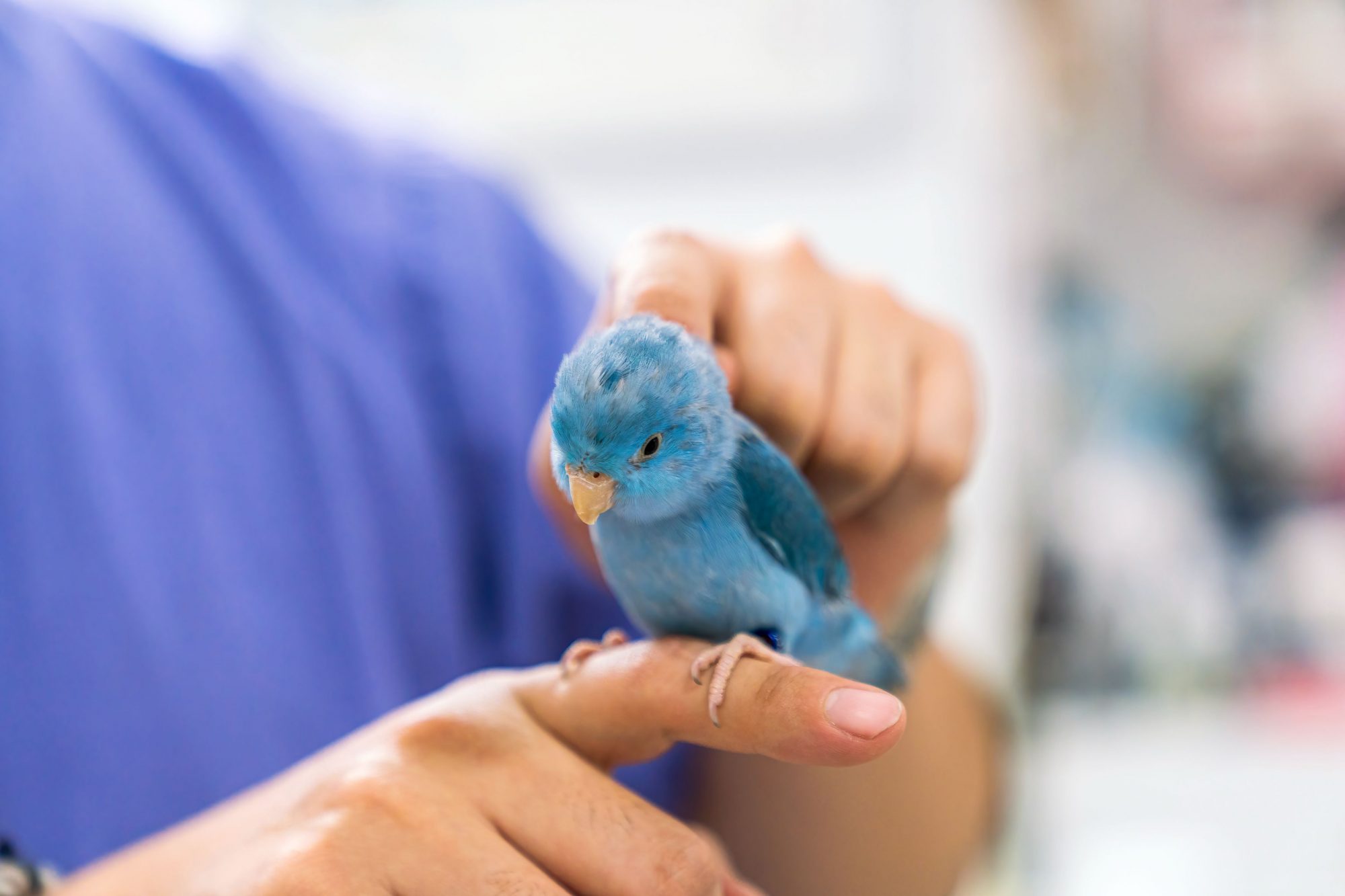Blog
Sign of an Ailing Avian: Is My Bird Sick?

Bird ownership is an adventure all its own. From choosing the right species to understanding the unique needs of our feathered friends, Ten West Bird & Animal Hospital is here to guide you on your journey. One of the most common problems that bird owners have is recognizing a sick bird. Catching an ailing avian early, though, is the key to helping them get better quickly. Learn how to tell if your pet bird is sick.
Hidden Dangers
Owning a pet is a huge responsibility, but bird care is a different experience than owning a dog.
Many species are known for their stoic nature when it comes to hiding illness—and avians are experts at it. Disguising illness in the wild is a survival mechanism; the weak don’t tend to fare well. Birds are masters at hiding problems.
As bird owners, we don’t intervene in an illness or disease process until we recognize that it is present. Because our pets hide early signs of trouble, though, we often miss opportunities to intervene quickly and avoid serious consequences.
Having a very good understanding of your pet’s normal behaviors and more subtle signs of illness can have an enormous impact on your bird’s health and longevity. Acting as soon as you think you might have an ailing avian can give our staff the upper hand against many disease processes.
How to Tell if You Have a Sick Bird
Observation is key in identifying a potentially sick bird. The most astute pet owners have a very good understanding of what is normal for their animal. Eating habits, normal behaviors, and activity levels all can hold important clues about your bird’s health.
Other early signs of a sick bird may include:
- Increased sneezing
- Coughing
- Decreased appetite
- “Pretending” to eat
- Vomiting
- Sleeping more
- Interacting less
- Change in voice
- Change in droppings
- Discharge from eyes or nose
- Hanging out on the bottom of the enclosure
- Increase in normal respiratory rate (watch for a bobbing tail)
Birds who do not feel well will also often puff their feathers and close their eyes. If you are stopping to ask “is my bird sick,” it is probably time to contact us. Usually, by the time you are sure, things are pretty progressed.
Keeping up on wellness exams and preventive care can also help you avoid dealing with an ailing avian. These visits provide opportunities to detect subtle changes, discuss husbandry, and perform screening tests like fecal examinations and blood work to find potential issues early in their course.
Your pet bird is relying on you to be their advocate. With a little knowledge and a lot of observation, you won’t disappoint them. You can never be too cautious with our feathered friends, and we are here to help you care for these special creatures.
